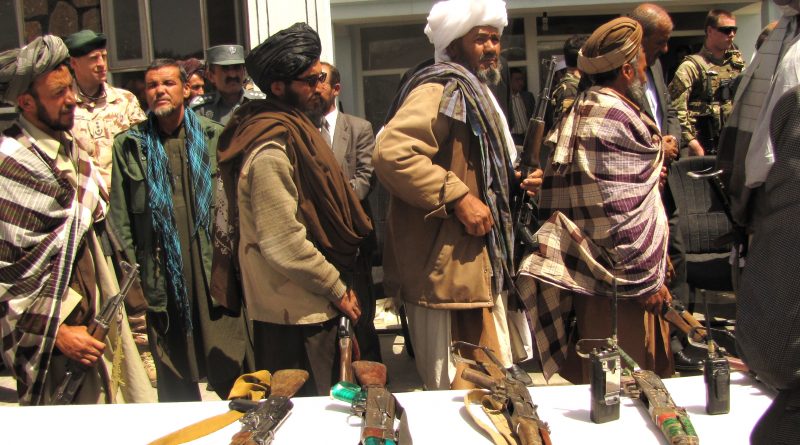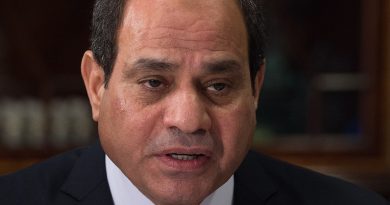Afghanistan Faces Uncertain Future Amid Taliban Takeover
Joshua Powanda
Staff Writer
The United States has concluded its troop withdrawal from Afghanistan, marking the end of America’s longest war and a complete Taliban takeover of the country. CNN reports that the last U.S. military planes left Hamid Karzai International Airport on August 30, officially ending American intervention in the conflict.
The U.S. first invaded Afghanistan following the September 11th terror attacks, aiming to dismantle the al-Qaeda terrorist network and prevent further terrorist acts. NPR explains that the U.S. and its allies sought to overthrow the Taliban regime in Afghanistan because it protected al-Qaeda and its leader, Osama Bin Laden, who masterminded the attacks. After a swift American victory in 2001, the mission soon transitioned into one focused on the reconstruction of Afghanistan. Despite 20 years of American financial, political, and military aid to the Afghan government, its security forces were unable to defend the country and maintain stability.
President Joe Biden first announced the U.S.’ plans to withdraw from the country in early April. Reuters reports that after the announcement, the Taliban launched a massive offensive operation, gaining control of half of Afghanistan’s districts by mid-July. Despite the Taliban’s rapid advance through the country, the U.S. remained steadfast in its operations to pull out of the country, beginning with the silent closure of Bagram Air Base.
The Taliban offensive eventually pushed into the country’s capital, Kabul, on August 15. Images of Taliban forces occupying the presidential palace were displayed on television screens throughout the world, taking the Afghan government, allied forces, and the world by storm. Upon the Taliban’s entrance into Kabul, the city was consumed with panic and dismay. The Associated Press released footage of helicopters racing above Kabul to evacuate personnel from the U.S. Embassy, rising smoke near the compound as staff worked to destroy sensitive documents, and the lowering of the embassy’s American flag.
Following the takeover, the Taliban announced the formation of an all-male interim government headed by Mullah Mohammad Hasan Akhund, who is currently under United Nations sanctions for his previous involvement with the Taliban, Al Jazeera reports. Other prominent officials appointed to key posts include Sirajuddin Haqqani as interior minister and Abdul Ghani Baradar, who spearheaded negotiations in Qatar, as deputy prime minister. Haqqani is among the founders of the Haqqani network and is one of the FBI’s most wanted terrorists due to his involvement in suicide attacks and ties to al-Qaeda.
This announcement has brought a significant international backlash, as many states claim the group has failed to honor its vows for a more inclusive government in Afghanistan. The Taliban has pledged that women will still be allowed to work under the new government, but only within the limits of Sharia law. Although there are many interpretations of Sharia law, CBS News explains that the Taliban follow a very strict version, as evident during the Taliban’s reign 20 years ago that saw public hangings, whippings, stonings, and other archaic measures take place on the streets.
With the Taliban in power across the country, many questions remain. Can the group maintain a modicum of stability and peace while still upholding standards of human rights and justice? In addition, is the U.S. safer after 20 years of intervention in Afghanistan? In an interview with Fox News, Chairman of the Joint Chiefs of Staff Mark Milley addressed both these issues, saying an Afghan civil war is likely and that terrorist organizations like al-Qaeda and ISIS could use the country’s power vacuum to bolster their operations.
Voice of America explains that China and Russia could also look to capitalize on the regional security vacuum left by the U.S. and are likely to recognize the new Taliban government. Similarly, the U.S. and its allies must face the possibility of recognizing a Taliban-led Islamic Emirate of Afghanistan. However, this will be fiercely debated among U.S. policymakers, as any recognition of the Taliban would give its military takeover more legitimacy and credibility in the international community. Such a move would also give other rebel militant groups around the world more political and moral ammunition to achieve their objectives.
Despite the chaotic nature of the American withdrawal from Afghanistan, CNN reports that the U.S. government and its allies were able to evacuate over 120,000 eligible people and bring them to safety elsewhere in the world – a brighter moment in a rather shaky time in the Middle East.



